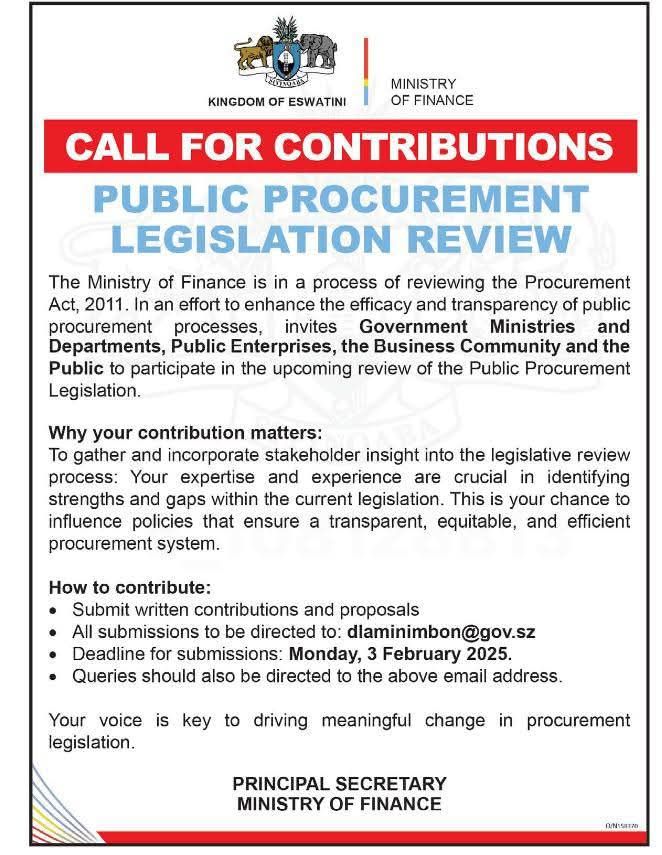
By Phiwa Sikhondze
Business Eswatini (BE) has welcomed the Ministry of Finance’s initiative to review the Public Procurement Act of 2011, emphasizing the importance of a transparent and efficient procurement system that supports small and medium enterprises (SMEs) and strengthens economic growth.
In a statement issued today, BE, as the country’s leading private sector advocacy group commended the government’s proactive approach, noting that a well-structured procurement framework can significantly enhance competitiveness among local businesses, drive innovation, and create jobs.
“An efficient public procurement system is crucial to ensuring transparent, fair, and cost-effective acquisition of goods and services across government, with far-reaching impacts on SMEs and Eswatini’s broader economic development,” the statement read.
Public procurement accounts for a significant portion of government spending, and BE believes that opening opportunities for SMEs in the supply chain will stimulate economic activity.
The organization stressed that streamlined procedures will help level the playing field for small businesses, enabling them to compete with larger firms for government contracts.
Additionally, BE highlighted the potential fiscal benefits of improved procurement policies, stating that reducing inefficiencies and wasteful spending would allow the government to allocate resources more effectively.
“Streamlined procedures will bolster fiscal responsibility by minimizing wasteful spending and directing resources to critical areas—including the health sector, where timely access to essential supplies is urgently needed,” BE stated.
While applauding the Ministry of Finance for leading the review, the business organization also issued a cautionary note against delegating legislative and policy-setting responsibilities to state organs.
The organization expressed concern that some government ministries have, in recent times, entrusted key regulatory functions to agencies that may have vested interests, potentially undermining public confidence in the reforms.
“We particularly commend the Ministry for taking the lead in this legislative process rather than delegating authority to state organs. We caution against such an approach, as it can erode public trust in the government’s ability to enact policies that serve the interests of all stakeholders,” BE stated.
According to BE, retaining direct oversight at the ministerial level ensures that procurement reforms align with national priorities rather than being influenced by narrower institutional interests.
BE has pledged to actively participate in the review process and contribute to shaping policies that foster accountability and inclusivity.

As part of its Business Advocacy Agenda, the organization will work closely with the Ministry of Finance to ensure that the updated procurement legislation supports economic growth, enhances transparency, and creates a business-friendly environment.
“We remain committed to championing reforms that enhance accountability, foster a supportive environment for SMEs, and ultimately deliver tangible benefits for Eswatini’s people and economy,” BE concluded.
